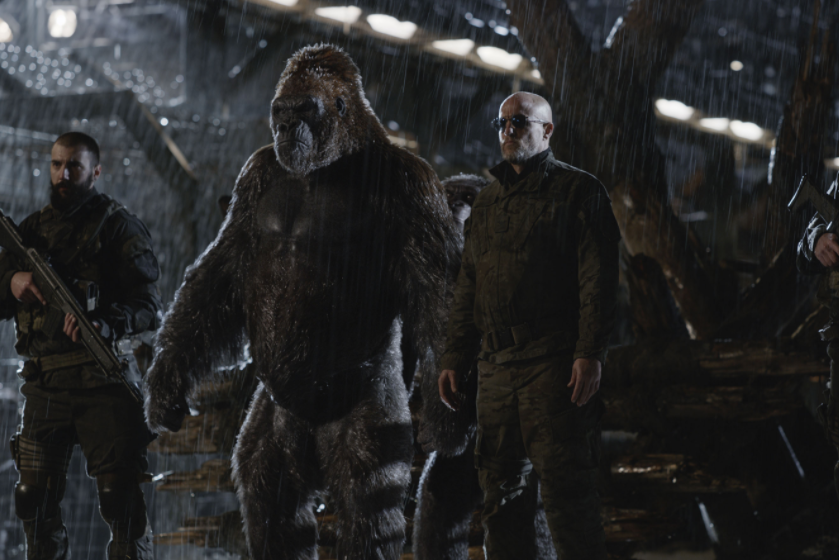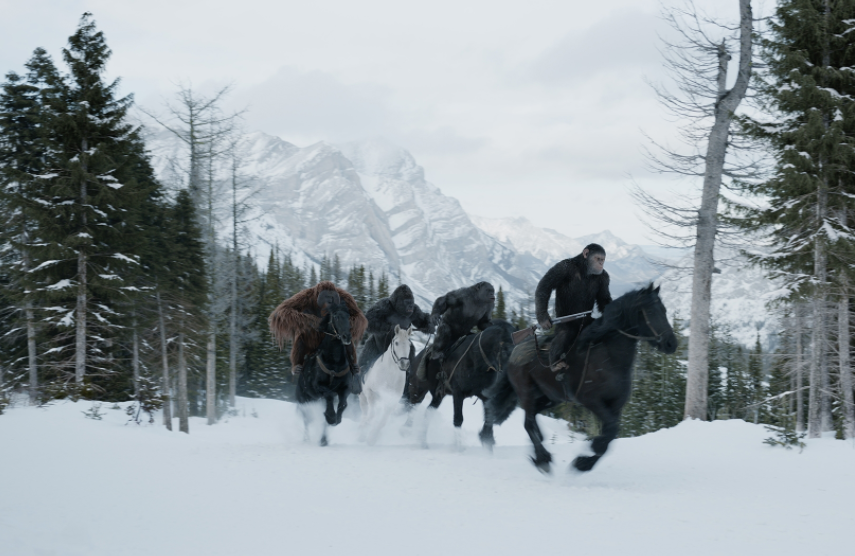For much of the duration of Matt Reeves’ War for the Planet of the Apes I sat in the cinema either trying to enjoy it more than I was or trying to figure out why I was enjoying it so little. I wanted to know why I wasn’t enjoying it because that why was eluding me and nothing much else came to mind. When I can’t think of anything to say about a film, the reviewing process, beyond a discussion of cinematography, acting etc. that you might find in any old review out there, becomes substantially more difficult.
I wanted to enjoy the film more than I was because a genuine worry had come over me. Is this how I experience films in a post-Dunkirk world, I wondered? Perhaps this was the film-going equivalent to returning to my trusty eight dollar bottles of wine after drinking a fifty dollar bottle of wine and finding that they just don’t taste as wonderful as they normally do. Ultimately, I’m convinced that I enjoyed War for the Planet of the Apes as much as it deserved, which is not particularly.

A matter of months, or years, it’s never specified, after the events of Dawn of the Planet of the Apes, Caesar (Andy Serkis) and his tribe of hyper-intelligent Hominoidea are waging open war against the remaining human population. Caesar has achieved a mythic-like status, and is pursued by a paramilitary organisation known as Alpha-Omega, led by a man only known as The Colonel (Woody Harrelson).
When Alpha-Omega bring the fight to the apes’ base of operations, Caesar’s wife Cornelia, and eldest son, Blue Eyes, are killed, setting Caesar on a quest for revenge. On his path to find The Colonel, Caesar discovers a string of humans with the inability to speak. Thaaaat’s right. We’re slowly moving toward 1968, except there’s not an atomic bomb in sight.
On an aesthetic level, War for the Planet of the Apes resembles its enjoyable predecessor. Moreover, I found its significant defects difficult to immediately distinguish. For these two reasons, I spent a long time trying to enjoy the film more than I actually was, believing the problem to be me. This looks and feels like Dawn of the Planet of the Apes, and the particulars of the plot weren’t lacking, so what? And then the problem hit me. Reeves’ film is one of the most poorly paced films I may have ever seen. Indeed, there is no pacing.

Reeves has assembled his film with a complete lack of rhythm in relation to how each scene corresponds with the others. What’s on screen isn’t bad, it’s just badly assembled. Moments of excitement will build only to be cut short by an abrupt shift to sentimentality; equally short-changed by a shift to unanticipated drama. I am sure that a better film dwells within the reels of War for the Planet of the Apes, but only a significant re-edit would yield it.
The franchise is heading to a destination that may be impossible to reach, because when it arrives at George Taylor, the mystery of the original film will have been deflated by these new film. That wonderful final shot sure will have less of an impact. Is Cornelius in this film the Cornelius from the original? Is Nova in this film the Nova from the original? The filmmakers have allowed themselves enough slack for either option. After War for the Planet of the Apes, I’m not sure that this franchise ought to look to far into the future.